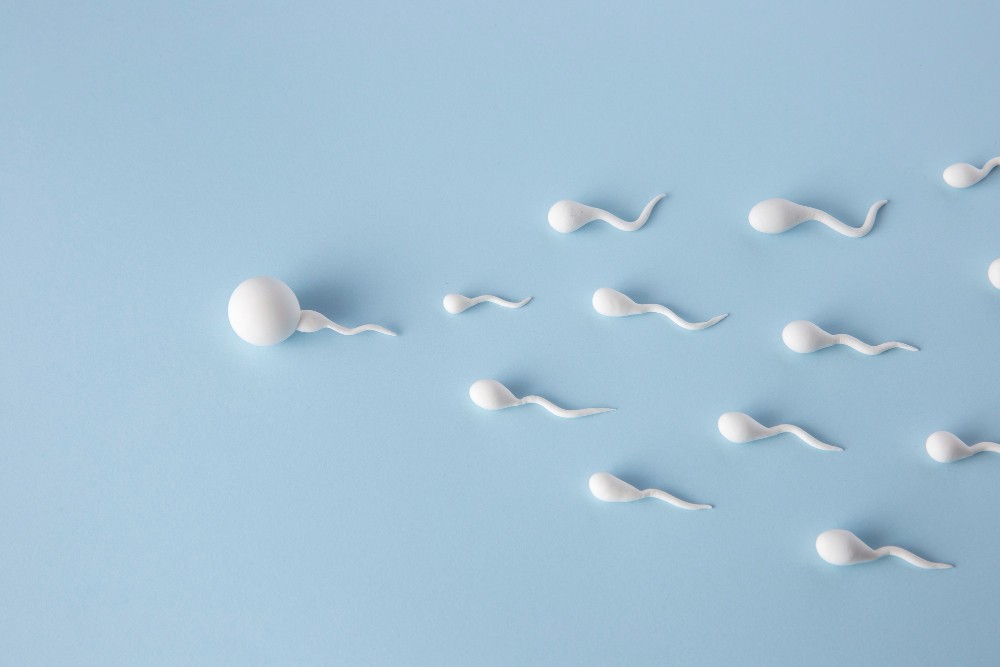Semen quality is an important factor in male reproductive health. Normally, semen is thick and whitish-gray in color. However, sometimes it can appear more watery, which may raise concerns, especially for couples trying to conceive.
What does watery semen indicate?
Watery semen can be a sign of several health and fertility issues in men, including:
Reduced fertility
Watery semen is often linked to lower sperm count, a condition called oligospermia. This reduces the chances of conception because fewer sperm are available to reach the egg. Watery semen may also suggest poor sperm motility, meaning the sperm have trouble swimming quickly enough to fertilize the egg.
Low sperm quality
Watery semen can also indicate poor-quality sperm. It may contain abnormally shaped sperm, which decreases the chances of fertilization. So, watery semen is not only a sign of a low sperm count but also of compromised sperm quality.
Underlying health problems
Watery semen might be a symptom of health problems, such as low testosterone or infections in the reproductive tract. Testosterone is essential for sperm production, and low levels can lead to a decrease in sperm, affecting the consistency of the semen. Other symptoms of low testosterone might include fatigue, erectile issues, and a reduced sex drive.
Infections like prostatitis or urinary tract infection can also cause inflammation that impacts semen quality and volume. Symptoms may include watery semen, painful urination, fever, or pelvic discomfort.
How to improve watery semen
If you notice your semen is unusually watery, it's essential to consult a doctor for a semen analysis. This test will evaluate sperm count, motility, and shape. If any issues are found, the doctor will recommend appropriate treatment.
Besides medical care, making healthy lifestyle changes can improve semen quality. Here are some tips:
- Eat a balanced diet rich in vegetables, fruits, and healthy proteins.
- Quit smoking and limit alcohol consumption.
- Exercise regularly to maintain overall health.
- Manage stress through activities like meditation or relaxation techniques.
For more questions about semen health or related concerns, you can make use of the consultation features that are available in the Ai Care application by downloading the Ai Care application from the App Store or Play Store.
Looking for more information about other diseases? Click here!
- dr Nadia Opmalina
Cleveland Clinic (2022). Oligospermia (Low Sperm Count). Available from: https://my.clevelandclinic.org/health/diseases/22477-oligospermia-low-sperm-count
Mayo Clinic (2022). Low sperm count. Available from: https://www.mayoclinic.org/diseases-conditions/low-sperm-count/symptoms-causes/syc-20374585
Jamie Eske (2019). What causes watery semen, and does it affect fertility?. Available from: https://www.medicalnewstoday.com/articles/325058
WebMD (2022). What Helps With Sperm Count and Quality?. Available from: https://www.webmd.com/infertility-and-reproduction/sperm-count
Meera Sunder and Stephen W. Leslie (2022). Semen Analysis. Available from: https://www.ncbi.nlm.nih.gov/books/NBK564369/
Amanda Barrell (2023). How does sperm motility affect fertility?. Available from: https://www.medicalnewstoday.com/articles/320160
Medline Plus (2023). Could you have low testosterone?. Available from: https://medlineplus.gov/ency/patientinstructions/000722.htm
Jens Rosellen, et all (2024). Impaired Semen Quality in Patients with Chronic Prostatitis. Available from: https://www.mdpi.com/2077-0383/13/10/2884












